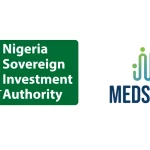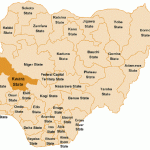General
Lekki Massacre: FG Calls Lagos Panel Report Waste of Taxpayers’ Funds
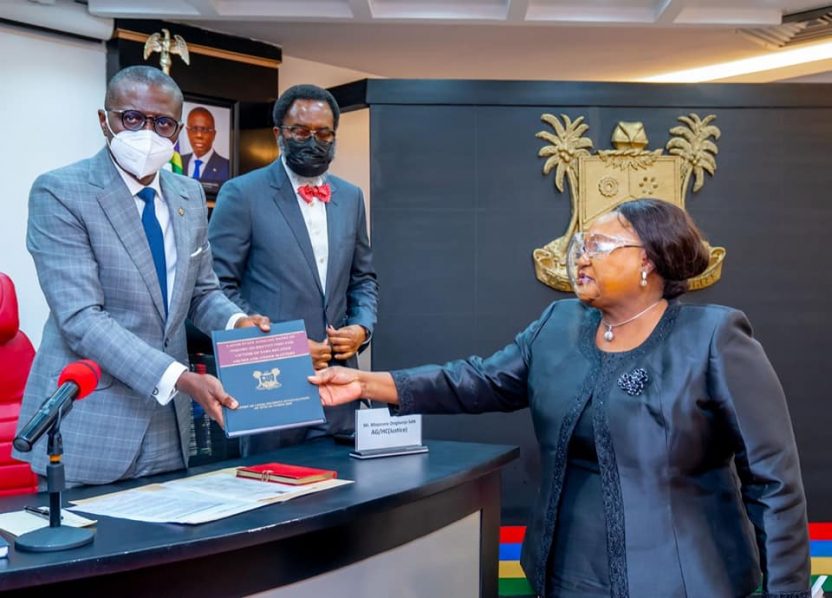
By Modupe Gbadeyanka
The federal government has picked holes in the leaked report submitted to the Lagos State Governor, Mr Babajide Sanwo-Olu, by the Lagos State Judicial Panel of Inquiry that investigated cases of police brutality as well as the incident of October 20, 2020, at Lekki Toll Gate in Lagos.
The Minister of Information and Culture, Mr Lai Mohammed, in a media briefing on Tuesday, described the report as a waste of “taxpayers’ funds and everyone’s time” because it “is nothing but the triumph of fake news and the intimidation of a silent majority by a vociferous lynch mob.”
He slammed the panel headed by a retired justice, Mrs Dorcas Okuwobi, for submitting “a report laden with allegations, the same allegations it was set up to investigate in the first instance.”
According to him, “never in the history of any judicial panel in this country has its report been riddled with so many errors, inconsistencies, discrepancies, speculations, innuendoes, omissions and conclusions that are not supported by evidence.”
“What is circulating in public space is simply a rehash of the unverified fake news that has been playing on social media since the incident of October 20, 2020,” he added.
Mr Mohammed questioned the use of massacre in context in the Lagos panel report to describe the action of the federal government agencies like the military and the police last year, when peaceful protesters sitting on the ground waving the national flag and reciting the national anthem were allegedly shot and killed and beamed live on Instagram by DJ Switch, who is now on exile.
“Why did the judicial panel feel compelled to concoct a massacre in context as a euphemism for massacre? A massacre is a massacre. What is massacre in context?” the Minister queried.
“It is clear, from the ongoing, that the report of the panel in circulation cannot be relied upon because its authenticity is in doubt. Besides, the Lagos State Government, being the convening authority, has yet to release any official report to the public.
“Neither has the panel done so. The cowardly leakage of an unsigned report to the public is not enough.
“Assuming the report in circulation bears any iota of genuineness, it is basic knowledge that the report of such a panel is of no force until the convening authority issues a White Paper and Gazette on it. It is therefore too premature for any person or entity to seek to castigate the federal government and its agencies or officials based on such an unofficial and unvalidated report,” he further said.
Mr Mohammed stressed that, “There is absolutely nothing in the report that is circulating to make us change our stand that there was no massacre at Lekki on October 20, 2020.
“For us to change our stand, a well-investigated report of the incident that meets all required standards and will withstand every scrutiny must be produced and presented to the public.”
“We also appeal to the families of those allegedly killed in Lekki to speak out. It’s untenable to say that some families did not come out because they are afraid. Any parent who is afraid to testify about the death of his or her child is not worth to be called a parent,” he stated, saying the government rejects “the notion that our soldiers and policemen massacred innocent Nigerians at Lekki on October 20, 2020. That conclusion is not supported by the weight of available evidence.”
Read the full text of the press conference below;
TEXT OF THE PRESS CONFERENCE ADDRESSED BY THE HON. MINISTER OF INFORMATION AND CULTURE, ALHAJI LAI MOHAMMED, IN ABUJA ON TUESDAY NOV. 23RD 2021 ON THE REPORT OF THE LAGOS STATE JUDICIAL PANEL OF INQUIRY AND RESTITUTION TO INVESTIGATE CASES OF POLICE BRUTALITY AND THE INCIDENT OF OCT. 20TH 2020 AT LEKKI TOLL GATE
Good morning gentlemen
- It’s no longer news that the Lagos State Judicial Panel of Inquiry that investigated cases of police brutality as well as the incident of Oct. 20th, 2020, at Lekki Toll Gate in Lagos has submitted its report. The submission happened while I was out of the country on national assignment. Unlike many commentators and analysts, we took our time to read and digest the report, and we are now well placed to respond.
- Without mincing words, let me say that never in the history of any Judicial Panel in this country has its report been riddled with so many errors, inconsistencies, discrepancies, speculations, innuendoes, omissions and conclusions that are not supported by evidence. What is circulating in public space is simply a rehash of the unverified fake news that has been playing on social media since the incident of Oct.
20th 2020. It is simply incredible that a Judicial Panel set up to investigate an incident has submitted a report laden with allegations, the same allegations it was set up to investigate in the first instance. Instead of sitting for all of one year, the panel could have just compiled social media ‘tales by the moonlight’ on the incident and submitted, saving taxpayers’ funds and everyone’s time. That report is nothing but the triumph of fake news and the intimidation of a silent majority by a vociferous lynch mob.
- Gentlemen, we have read some critical analysis of the report by a courageous few. One commentator, a lawyer, said it raised more questions than answers. Another commentator, a journalist, called it a ‘disgraceful report by a disgraceful panel’, saying it reported allegations instead of investigating the allegations. Yet another wondered how a Judicial Panel could use the words ‘massacre in context’ and equate such to a massacre. All these and many more have raised valid questions on that report. We salute their courage and refusal to be cowed by the rampaging lynch mob that has been screaming blue murder since the report was released.
- We do not intend to bore you by rehashing details of the discrepancies, innuendoes, inconsistencies and errors in that report. They are already in the public space. Let us, however, point out some key highlights of such discrepancies, errors, omissions, etc.
- i) – The report threw away the testimony of ballistic experts who testified before it. The experts said, inter alia, in their testimony:
”The Team finds that from the medical data examined, including the timeline of arrival at medical facility and the nature of the injuries sustained by the Victims, who were taken to the 5 medical facilities, that no military grade live ammunition (high-velocity) was fired at the protesters at Lekki Tollgate on 20th October 2020, within the timeframe of reference (18.30- 20.34hrs). That the GSW (Gun Shot Wounds) injuries (4 in number between 19:05 and 19:45 hrs), which were examined by the Team, can be safely identified as being discharged by either low velocity caliber and/or artisanal/12-gauge firearms (artisanal firearms are locally-fabricated weapons). What is however certain is that had the military personnel deliberately fired military grade live ammunition directly at the protesters; there would have been significantly more fatalities and catastrophic injuries recorded. This was clearly not the case.’’
- ii) – The same panel that said it deemed as credible the evidence of the Forensic Pathologist, Prof. John Obafunwa, that only three of the bodies on which post mortem were conducted were from Lekki and only one had gunshot injury went on to contradict itself by saying nine persons died of gunshot wounds at Lekki!
iii) – The man whose evidence (that he counted 11 bodies in a military van where he was left for dead before he escaped) was found to be crucial by the panel never testified in person. Rather, the video of his ‘testimony’ was played by someone else. It did not occur to the panel to query the veracity of the testimony of a man who said he was shot and presumed dead but still had time to count dead bodies inside a supposedly dark van at night!
- iv) – The panel said trucks with brushes underneath were brought to the Lekki Toll Gate in the morning of Oct. 21 2020 to clean up bloodstains and other evidence, but still found bullet casings at the same site when it visited on Oct. 30th 2020. It said soldiers picked up bullet casings from Lekki Toll Gate on the night of Oct. 20th 2020, yet claimed that policemen came to the same spot to pick the same bullet casings on Oct. 21st 2020!
- v) – The panel was silent on the family members of those reportedly killed, merely insinuating they were afraid to testify. Even goats have owners who will look for them if they do not return home, not to talk of human beings. Where are the family members of those who were reportedly killed at Lekki Toll Gate? If the panel is recommending compensation for the families, what are their identities and addresses? Who will receive the compensations when no family members have shown up to date?
- vi) – How did a man who reported seeing the lifeless body of his brother himself ended up being on the list of the panel’s deceased persons?
vii) – How can a Judicial Panel convince anyone that the names of some casualties of the Lekki Toll Gate incident listed as numbers 3 (Jide), 42 (Tola) and 43 (Wisdom) are not fictitious names.
viii) – Why did the Judicial Panel feel compelled to concoct a ”massacre in context” as a euphemism for ”massacre”? A massacre is a massacre. What is ”massacre in context?”
- ix) – The report never mentioned cases of police personnel who were brutally murdered or the massive destruction of police stations, vehicles, e.t c during the Endsars protest. Does this mean that the panel didn’t consider policemen and women as human beings?
- x) – The report didn’t make any recommendation on the innocent people whose businesses were attacked and destroyed during the protest in Lagos. I think it was too busy looking for evidence to support its conclusion of ‘massacre in context’.
- It is clear, from the ongoing, that the report of the panel in circulation cannot be relied upon because its authenticity is in doubt. Besides, the Lagos State Government, being the convening authority, has yet to release any official report to the public.
Neither has the panel done so. The cowardly leakage of an unsigned report to the public is not enough. Assuming the report in circulation bears any iota of genuineness, it is basic knowledge that the report of such a panel is of no force until the convening authority issues a White Paper and Gazette on it. It is therefore too premature for any person or entity to seek to castigate the Federal Government and its agencies or officials based on such an unofficial and unvalidated report.
- CNN AND OTHERS
The CNN has been celebrating the leaked report of the Lagos State Judicial Panel of Inquiry. In its rush to claim vindication, CNN apparently didn’t even read the report before rolling out the drums in celebration. By that action, CNN has celebrated prematurely and has now committed a double faux pas: First, by relying on unverified social media stories and videos to carry out an investigation of the Oct. 20th 2020 incident at Lekki, where it did not have a correspondent on ground. CNN goofed in its report on the findings of the panel, which fell below the main standards of journalism. Secondly, CNN rushed to the air to celebrate an unsigned and unverified report that is riddled with inconsistencies, errors, discrepancies, innuendoes. That’s double faux pas by a news organization that is eager and willing to compromise standards just to claim vindication.
- Sadly, a section of the Nigerian media has also joined the lynch mob. Honestly, in an attempt to vilify government at all costs, they have done themselves a great disservice. How can any news organization worth its salt write an Editorial validating this kind of report? Are they not seeing what others, including journalists and lawyers, are seeing? In a shocking twist, a Nigerian newspaper chose to hail what it calls ‘’detailed investigative report’’ by CNN, even when the news channel did not even cover the incident of Oct. 20th 2020! It’s a classic case of cutting your nose to spite your face.
9 CONCLUSIONS
- i) – Gentlemen, there is absolutely nothing in the report that is circulating to make us change our stand that there was no massacre at Lekki on Oct. 20th 2020. For us to change our stand, a well-investigated report of the incident that meets all required standards and will withstand every scrutiny must be produced and presented to the public. The report in circulation does not meet those requirements. We also appeal to the families of those allegedly killed in Lekki to speak out. It’s untenable to say that some families did not come out because they are afraid. Any parent who is afraid to testify about the death of his or her child is not worth to be called a parent.
- ii) – We reject the notion that our soldiers and policemen massacred innocent Nigerians at Lekki on Oct. 20th 2020. That conclusion is not supported by the weight of available evidence. Indictment for murder is a very serious issue that cannot be done on the basis of allegations and corroborations, as the panel did. Such allegations must be proved beyond a reasonable doubt. The report in circulation is calculated to embarrass the Federal Government and its agencies without foolproof evidence. The Federal Government has never condoned the abuse of the rights of Nigerians by security agencies under any guise, hence it disbanded SARS and encouraged states to set up the panels to investigate reports of human rights abuses allegedly committed by the disbanded SARS personnel
iii) – The 37 policemen and six soldiers who died across the country during the Endsars protest are also Nigerians and should not be forgotten.
- iv) – Those who have engaged in premature celebration of the report in circulation should now go back and read it thoroughly and tell Nigerians whether it can pass any serious scrutiny.
- v) – We are saddened that anyone died at all during the Endsars protest as the life of every Nigerian and indeed every human is sacrosanct. As we have disclosed many times, 57 civilians, 37 policemen and six soldiers were killed across the country during the protest, and we commiserate with their families.
10) Gentlemen, I thank you for your kind attention. I will now take your questions.
General
FG Insists Prepaid Meter is Free, Warns Nigerians Against Payment
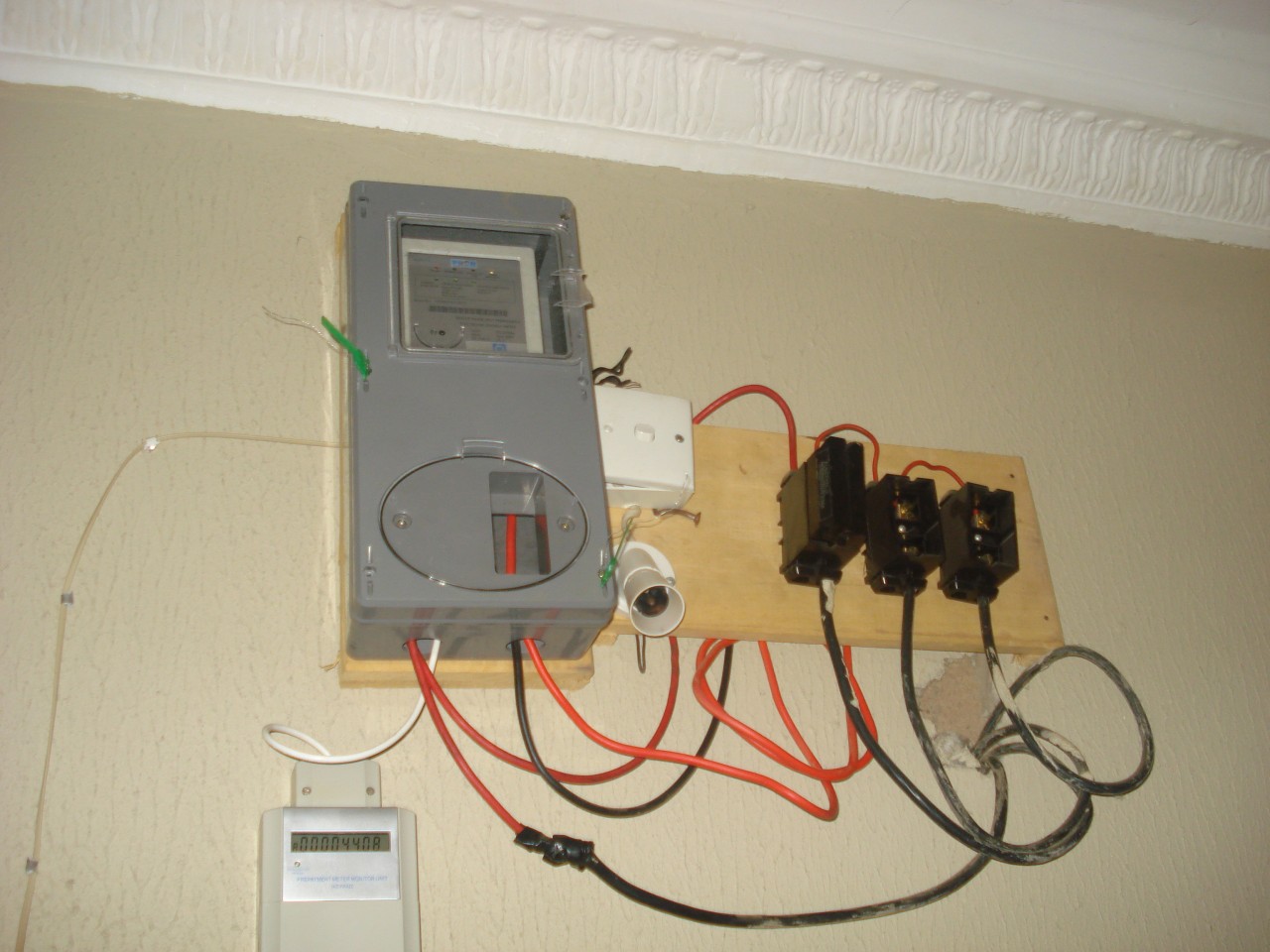
By Adedapo Adesanya
The federal government has reaffirmed that electricity meters being deployed under the Distribution Sector Recovery Programme (DISREP) are free for customers, warning Nigerians not to pay any money for meter supply or installation.
The Director General of the Bureau of Public Enterprises (BPE), Mr Ayodeji Ariyo Gbeleyi, stated this in Abuja at a joint media briefing on DISREP with the managing directors of Nigeria’s 11 Electricity Distribution Companies (DisCos). DISREP is financed through a $500 million World Bank facility.
The DG said the concessional nature of the funding, which comes at single-digit interest rates, makes it more sustainable than commercial borrowing and supports long-term stability in the power sector.
Under the DISREP IPF, 3.2 million smart meters are being procured and installed nationwide over four years through competitive international and local bidding. According to him, close to 700,000 meters have already been delivered, while about 200,000 have been installed across different DisCos.
The DG said, “With DISREP and other Federal Government interventions, the journey to power sector reliability is underway. DISREP is not just a short-term intervention, but part of a broader and coordinated plan of the Renewed Hope Agenda of President Bola Ahmed Tinubu, GCFR, towards building a financially viable and service-oriented electricity market
“Nigerians deserve a power sector that works, one that delivers reliable electricity, protects consumers, ensures value for money, and supports economic growth.
“Together, we shall achieve that! The supply and installation of these meters for customers is free.
It was also disclosed that the government had already paid the contractors to supply and install the meters. DISREP is integrated with other metering initiatives, including the Presidential Metering Initiative and the Meter Acquisition Fund, to accelerate the closing of Nigeria’s metering gap.
On his part, the Managing Director of Abuja Electricity Distribution Company, Mr Chijioke Okwuokenye, warned customers not to pay for meters.
“These meters are to be deployed and installed freely. Anybody asking you to bring money should be reported,” he said.
MD of Eko Electricity Distribution Company (Eko Disco), Mrs Wola Joseph-Condotti, said the company is working closely with the authorities to weed out bad eggs who extort money from customers for meter procurement and installation.
The programme offers significant benefits to consumers, including the removal of upfront meter purchase and installation costs, accurate billing, the elimination of arbitrary estimated billing, improved service accountability by DisCos, better transparency and dispute resolution, and long-term improvements in supply reliability as the sector becomes more financially viable.
For DisCos, Mr Gbeleyi said DISREP provides access to concessional World Bank financing for metering and network upgrades, reduces Aggregate Technical, Commercial and Collection (ATC&C) losses, improves liquidity and revenue assurance, and strengthens operational performance for long-term investment.
He disclosed that $250 million of the facility is dedicated to Investment Project Financing, which supports bulk procurement of the 3.2 million smart meters, deployment of Meter Data Management Systems, and provision of technical assistance and capacity-building programmes to strengthen DisCos’ operations and processes.
Describing DISREP as a landmark transaction, Mr Gbeleyi said it is the first initiative of its kind in which the government, beyond investing in distribution network infrastructure, is deploying meters at scale to bridge the country’s metering gap. He cited official figures showing that Nigeria currently has about 5.66 million unmetered electricity customers.
“The plan is to quickly close that gap. These meters are for everybody. They are for Nigerians. Priority is on unmetered customers,” he said.
He clarified that while the policy targets unmetered customers, DisCos have been allowed to deploy up to 20 per cent of the meters to replace faulty or technologically obsolete units, following feedback from the field.
General
NSC Revamps PSSP to Solve Complaints, Boost Ease of Doing Business in Ports
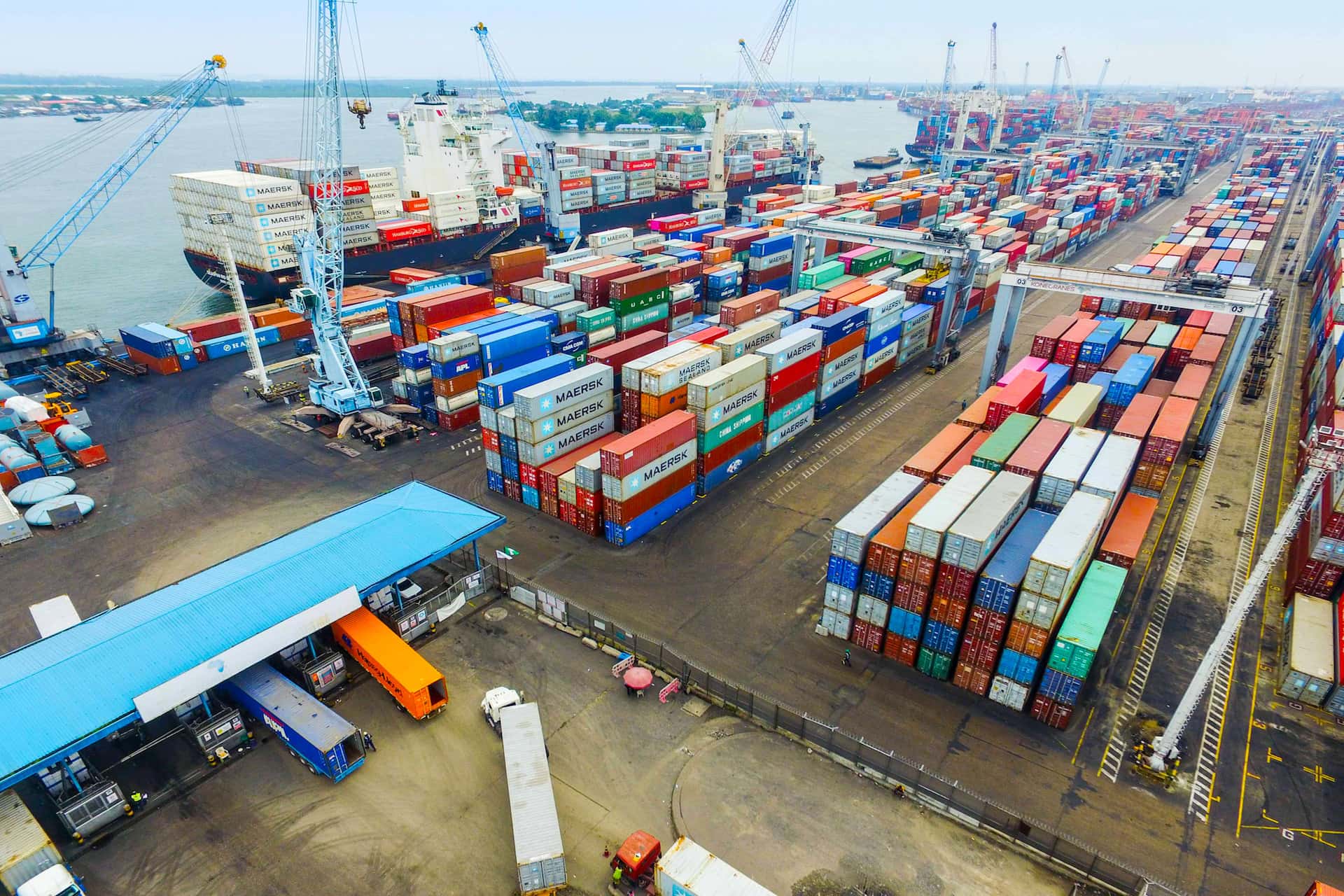
By Adedapo Adesanya
The Nigerian Shippers’ Council (NSC) has successfully concluded the review of the Port Service Support Portal (PSSP) application, which is aimed at ensuring seamless handling and efficient resolution of stakeholders’ commercial disputes across the maritime sector.
The Head of NSC-ICT, Mr Benjamin Ivwigheghweta, and his team; the Head of the Complaints Unit, Mr Bashir Ambi and his team; as well as consultants from BrandOne, all collaborated to complete the platform’s final implementation stage.
Mr Ivwigheghweta expressed satisfaction with the successful integration of the revamped PSSP for streamlined dispute resolution. He encouraged the team to fully engage with the new system and to ask questions where necessary, ensuring that every member is well equipped to meet stakeholder needs with precision and efficiency.
On his part, Mr Ambi applauded the deployment of the PSSP as a tool for accelerating grievance resolution, adding that the platform would significantly strengthen the council’s dispute resolution framework by promoting transparency, boosting stakeholder confidence, and generating reliable, data-driven records to support national economic growth.
He further commended the ICT team for its unwavering support-particularly in ensuring extended network availability to support the Unit’s after-hours operations.
Describing the PSSP as a critical modern upgrade for dispute resolution, Mr Ambi revealed that the Council’s operations are now about 90 percent digital. “We rely heavily on electronic platforms to serve our stakeholders,” he said, adding that the ICT Unit has remained the backbone of these efforts by providing consistent support, even over weekends, to ensure uninterrupted online service delivery.
This digital-first approach, he noted, keeps the NSC at the forefront of maritime efficiency.
Following a productive three-hour technical review and interactive question and answer session, the PSSP is now in its final phase.
The next steps include the configuration of individual user access by the ICT Unit and a live demonstration of the platform to Management. Upon completion of these tasks, the council will be ready to go live-ushering in a new era of digital efficiency in port service delivery.
The Port Service Support Portal was officially launched by the former Vice President, Mr Yemi Osinbajo, in June 2016 in Abuja. The launch was held alongside the unveiling of the Port Harmonized Standard Operating Procedures (SOPs). The portal was designed as an online, real-time platform to enhance service delivery, address stakeholder complaints, and curb corruption at Nigerian ports.
General
Tinubu Deploys Army to Kwara, Condemns Terrorist Attack
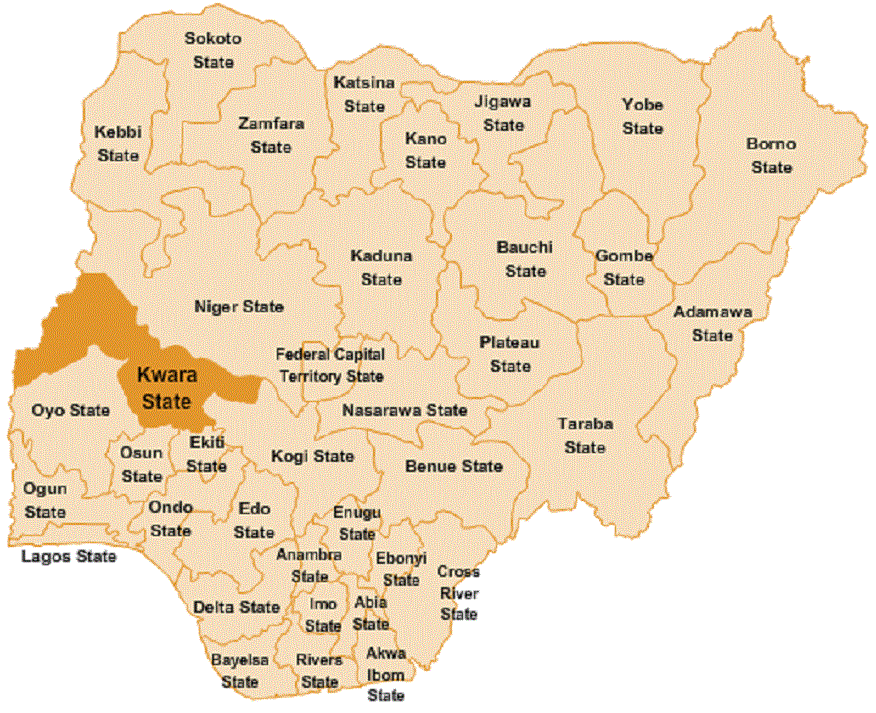
By Adedapo Adesanya
President Bola Tinubu has deployed an army battalion to Kaiama district in Kwara State after suspected jihadist fighters killed about 170 people in an overnight attack on Tuesday.
The terrorists stormed Woro and Nuku communities in Kaiama Local Council, according to Kwara State lawmaker, Mr Saidu Ahmed.
The violence highlights fears that jihadist factions prevalent in Northern Nigeria are pushing south along the Niger-Kwara axis toward the Kainji forest.
According to a statement from the Presidency, the new military command will spearhead Operation Savannah Shield to checkmate the barbaric terrorists and protect defenceless communities.
He condemned the attack as “cowardly and barbaric,” saying the gunmen targeted villagers who had rejected attempts to impose extremist rule.
“It is commendable that community members, even though Muslims, refused to be conscripted into a belief that promotes violence over peace,” President Tinubu said in the statement.
The President urged collaboration between federal and state agencies to provide succour to members of the community and ensure that those who committed the atrocities do not go scot-free.
President Tinubu prayed for the repose of the souls of the deceased and condoled with those who lost family members as well as the people and government of Kwara State.
Similarly, suspected bandits stormed Doma community in Tafoki Ward, Katsina State, on Tuesday afternoon, killing several residents, injuring many others and setting vehicles and houses ablaze.
There were conflicting figures over the casualty toll, with police putting the number of deaths at 13, while the executive chairman of Faskari Local Council estimated more than 20.
-

 Feature/OPED6 years ago
Feature/OPED6 years agoDavos was Different this year
-
Travel/Tourism9 years ago
Lagos Seals Western Lodge Hotel In Ikorodu
-

 Showbiz3 years ago
Showbiz3 years agoEstranged Lover Releases Videos of Empress Njamah Bathing
-

 Banking8 years ago
Banking8 years agoSort Codes of GTBank Branches in Nigeria
-

 Economy3 years ago
Economy3 years agoSubsidy Removal: CNG at N130 Per Litre Cheaper Than Petrol—IPMAN
-

 Banking3 years ago
Banking3 years agoSort Codes of UBA Branches in Nigeria
-

 Banking3 years ago
Banking3 years agoFirst Bank Announces Planned Downtime
-

 Sports3 years ago
Sports3 years agoHighest Paid Nigerian Footballer – How Much Do Nigerian Footballers Earn












